#garulf
Text
“The dwarf breathes so loud we could’ve shot him in the dark 😤” — Haldir
“You’ll go faster with just two.” “But papa says Eothain cannot ride Garulf! He is too big for him!” — Morwen and Freda
“You are our king, sire.”— Gamling when the king asks him “who am I, Gamling”
“AHHHHH”- Háma being eaten by a warg
“The men say we will not live out the night…they say that it is hopeless :(“— Haleth
“You know the laws of this country, the laws of your father! If you let them go your life will be forfeit.” - Madril
*horse sounds* — Brego
“We have some nice cozy hobbit sized rooms available! Always proud to cater to little folk…” — Butterbur
“Get out of my field!” — Farmer Maggot
#lotr#overthinkinglotr#polls#Morwen and Freda almost pass the bechdel test but don’t#bc Morwen s name is never revealed in the film itself#so sad#I have a cold so I’m making polls
537 notes
·
View notes
Photo
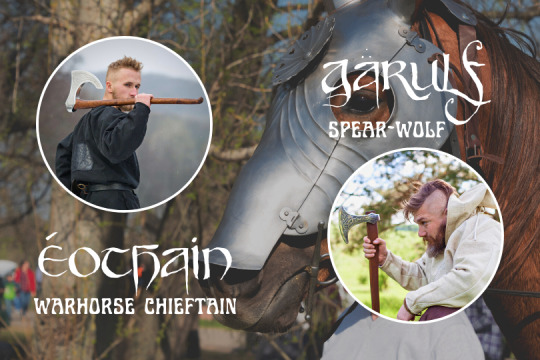
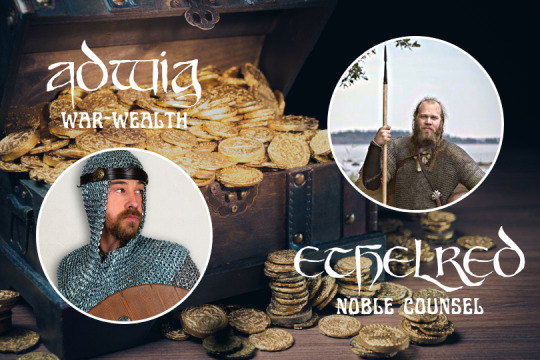
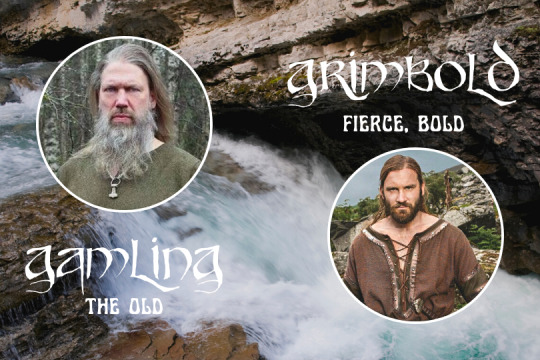
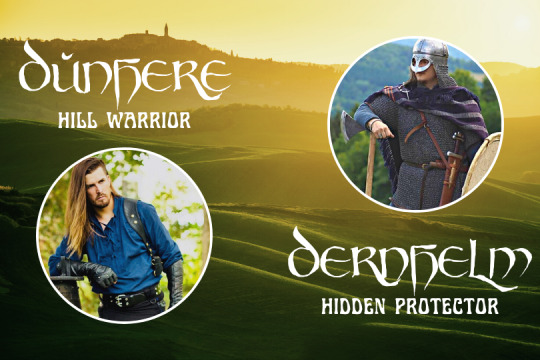
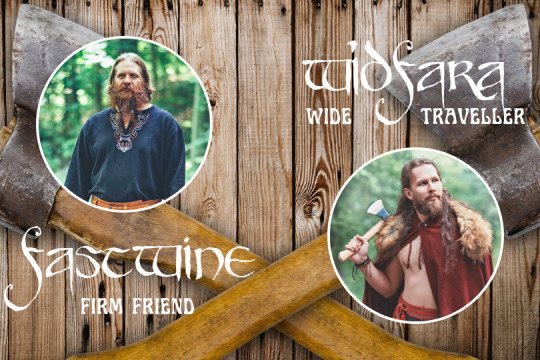
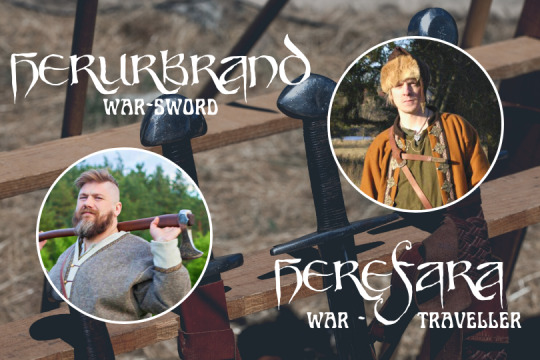
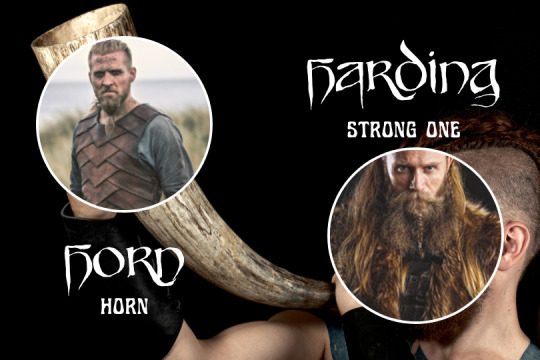
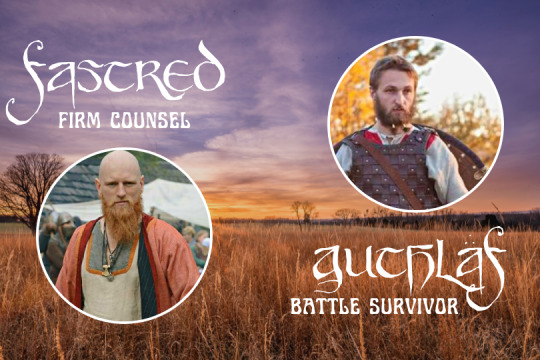
men of middle-earth ❅ northmen ❅ headcanon disclaimer
The Riders of Rohan were the horse-mounted warriors of the Rohirrim, divided into several éoryd led by the Marshals of the Riddermark. At the time of the War of the Ring, many riders did noble deeds and many others perished in battle.
Among the éored of Éomer who overran the Uruk-hai of Uglúk were his squire Éothain, who doubted the tale of holbytlan captured by orcs, and the warriors Gárulf, Adwig, and Ethelred, who lost their lives in the fight. The Three Hunters were given horses by Éomer, Aragorn riding Hasufel, once the steed of Gárulf, while Legolas and Gimli together rode Arod, once the steed of Adwig. Ethelred’s horse, Brego, fled the battle and ran wild, until eventually he was recovered and returned to Edoras, where Aragorn soothed him into a steed worthy of riding into battle once more.
Two valiant captains of the Riders were Grimbold of Grimslade, descendant of Grim, and Gamling the Old. Grimbold served under Théodred, Second Marshal of the Mark, and took command of the Fords of Isen after his prince fell, holding it until reinforcements arrived. Gamling, known in his youth as Baldwig, was an old man at the Battle of the Hornburg, but he was still a commanding presence and was the first to realize that orcs had penetrated the Deep through its culvert, and led the counter-attack himself.
Dúnhere, Lord of Harrowdale and nephew of Erkenbrand, served under Grimbold in the Battle of the Fords of Isen, and later rode the muster of the Rohirrim at his homeland of Harrowdale, answering the call of the King for soldiers to fight in the War. Many riders answered and all were welcomed, including Wídfara of the Wold, Herubrand and his son Herefara, the ceorl Fastwine who had served as a messenger and won the King’s favor, and many others. Wídfara joined the éored of Elfhelm, while Herubrand, Herefara, and Fastwine were invited to Théoden’s personal éored, the King’s Riders, to replace three soldiers who had fallen at Helm’s Deep.
The only warrior whose service was refused was the Lady Éowyn, the King’s sister-son, who was commanded to remain in Rohan to lead in his stead. But Éowyn would not be denied, and she disguised herself as the warrior Dernhelm and rode with the Riders to Gondor against her uncle’s orders. On the journey, she befriended Meriadoc Brandybuck, who was likewise defying Théoden’s word, and together they rode the horse Windfola into battle. In the end, the combined attack of Dernhelm and Merry were enough to slay the unkillable Witch-king of Angmar, though not in time to save the life of Théoden King.
Many men fell in the Battle of Pelennor Fields, including six of the King’s Riders: Harding and Horn, valiant men both; Herefara and his father Herubrand; the ceorl Fastred, akin to Fastwine, and Guthláf the banner-bearer. So also fell Dúnhere and Déorwine and Grimbold, mighty commanders. All were remembered in the Song of the Mounds of Mundburg, a grand poem honoring those who gave their lives fighting against the Shadow, their names going down in history alongside those of Gondor’s Captains of the Outlands who also perished on that fateful day.
#tolkienedit#lotr#eothain#garulf#grimbold#gamling#dunhere#widfara#herubrand#herefara#ceorl#eowyn#harding of rohan#horn of rohan#fastred of the king's riders#guthlaf#my edit#tefain nin#men of middle earth#northmen
39 notes
·
View notes
Conversation
*playing Lord of the Rings Trivial Pursuit*
Question: What is the name of the horse Éothain and Freda escape on?
Answer: Gárulf
Me: Wait, so the horse was a Witcher?
Niece: No. He was a knock-off Witcher!
#Family game night#The Witcher#Lord of the Rings#characters#I feel bad for Eothain and Garulf#they were both proud and noble Riders of Rohan in the book#and the movie turned them into a boy and his horse#although I guess if anyone's going to be okay with becoming a horse#it would be a Man of Rohan
1 note
·
View note
Text
I was looking up the etymology of werewolf terminology for a friend from France and for werewolf it did indeed just end up at “man-wolf”. (The "were" probably comes from the Old English "wer", which just meant "man". The same word existis in old Dutch and old German with slight variations.)
But for the French loup-garou it said that "garou" is believed to be derived from "garoul", derived from "garulf", derived from "wariwulf"...which just means werewolf again
...so French werewolves are “wolf-werewolves”
182 notes
·
View notes
Text
Vocabulary (pt.dcccliv)
Words taken from Empire of Wild (2019) by Cherie Dimaline:
rogarou (n.)
a legendary creature in Laurentian French communities linked to traditional concepts of the werewolf. The stories of the creature known as a [rogarou] are as diverse as the spelling of its name, though they are all connected to francophone cultures through a common derived belief in the loup-garou ... Loup is French for wolf, and garou (from Frankish garulf, cognate with English werewolf) is a man who transforms into an animal. [x]
Michif (n.)
the language of the Métis people of Canada and the United States, who are the descendants of First Nations women (mainly Cree, Nakota, and Ojibwe) and fur trade workers of European ancestry (mainly French and Scottish Canadians). [x]
halfbreed (n.)
offensive. a person of mixed race.
wolfssegen (n.)
in Bavarian folklore of the Early Modern period, an apotropaic charm against wolves. [x]
Anishnaabe (n.)
the preferred name for the Ojibwa, an Algonquian people living in northern Quebec, northern and central Ontario, Manitoba, and Saskatchewan.
kombucha (n.)
a fermented, lightly effervescent, sweetened black or green tea drink commonly consumed for its supposed health benefits. [x]
taxidermy (n.)
the art of preparing, stuffing, and mounting the skins of animals or birds etc. in lifelike poses.
euchre (n.)
a card game for two to four players in which the highest cards are the joker (if used), the jack of trumps, and the other jack of the same colour in a pack with the lower cards removed, the aim being to win at least three of the five tricks played.
bootlegger (n.)
a person who makes, distributes, or sells goods illegally.
tabernac (n.)
one of the worst curse words you can use in French Canada. French Canada has a strong tradition of Roman Catholicism and this sacrilegious word takes the word tabernacle in vain. [x]
7 notes
·
View notes
Link
Chapters: 1/1
Fandom: Lord of the Rings - J. R. R. Tolkien
Rating: Explicit
Warnings: No Archive Warnings Apply
Relationships: Éomer/Faramir
Characters: Éomer, Faramir, Boromir, Denethor, Éothain, Garulf
Additional Tags: Romance, Drama, First Time, Slash
Summary:
When Denethor orders Faramir to seduce Eomer it highlights some cultural differences between Gondor and Rohan, and leads to a moment of self-discovery for Faramir.
1 note
·
View note
Photo
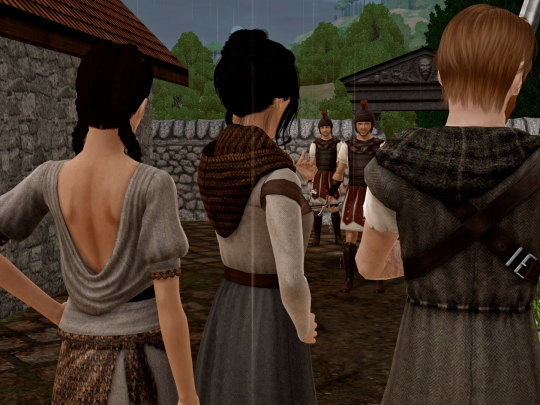


Cecilia: She requests a parley.
Centurio: And who are you!?
Cecilia: I am her voice.
Lavinia&Cecilia: Garulf and Hildric are slain. Hildric’s son is too young to rule. I was Hildric’s wife and these people are my subjects now. Anyone who does harm to them will have to answer to my brother the Roman Emperor. I request land for them to settle on and I decree that Roxas shall rule for his nephew Teudilas until he comes of age. I’m not so presumptuous as to call myself Queen of the Goths. I defeated the false queen, and their true queen is a faraway river that waits for them to come home. When they do, I hope they will call me their protectress. It must be good to have a river to come home to.
10 notes
·
View notes
Note
What do you consider the Rougarou as? Ive got it conceptulize as a combination of werewolf and wendigo.
Hi anon!
I’m interpreting this question as like... “what do you think the rougarou is aesthetically AND folklore-wise?”, and I apologize if i’ve got it wrong. There’s also a couple of points I want to address in this answer that might seem rather off topic, so please bear with me! I just really love werewolves (which... is Not A Surprise to anyone at this point, I know), but you’ve also risen a red flag re: cultural appropriation and misrepresentation and I would feel remiss if I didn’t address that.
(Note: all instances of “you”/”we” are used in general terms here, unless specified otherwise. I am in no way “attacking” you, anon, or anyone else in particular)
When we say “werewolf”, what we generally mean is “human-wolf-shapeshifter-creature-thing mashed together from various folklores/cultures and viewed through a Hollywood-tinted lens”. In every culture around the world where wolves and humans have mingled (whether that’s general interaction like living side-by-side, or with more animosity i.e., where competition is fierce), there is something that we can recognize as a werewolf. Part of it is, I think, because humans are pack animals, too. There are parallels between us and wolves that are hard to ignore & we’ve lived in close quarters for centuries, but there’s also this... fear. This sense that wolves are much wilder than we are, and therefore can never be fully tamed/domesticated. And also there’s this fear of becoming an animal or submitting to “the animal within”. (Then there’s the way that mental health issues and physical differences have been explained through folklore, but that’s going way too far off the path into rambling territory, so, moving swiftly on – )
All this is my way of saying that as far as I see it, a rougarou is a werewolf. Or at least, it’s a part of the pop culture hodgepodge mythos that we’ve come to call “werewolf”. It traces back to the French loup-garou, which basically translates to “man who turns into wolf”
Loup is French for wolf, and garou (from Frankish garulf, cognate with English werewolf) is a man who transforms into an animal.
– Wikipedia, Rougarou
In essence: a werewolf. It has, however, taken on a life of its own in Cajun culture, and I think it’s very important to consider that, too! The people who keep the folklore and the lands in which they live have such a strong bearing on how the folklore is conceptualized, and I think that is incredibly beautiful.
I.e., while a loup-garou is French in name and therefore the specific legends connected to it come from francophone culture in Europe, the rougarou has strong ties to swamps, sugar cane fields and forests because that’s the landscape it came to inhabit in New Orleans. It has a very different vibe to a man-wolf who roams cold, snowy forested and mountainous terrain, terrorizing remote villages. When someone says rougarou, I think of humid weather and the hazy unreality of a swamp late at night during summer; of staring through the darkness, pausing to wipe sweat from your brow, and seeing something creeping between the gangly trees that tower out of the murky waters.
But. What a rougarou is not – and cannot – be comparable to is a wendigo. I doubt you had any bad intent behind this ask and so I’m taking it entirely in good faith but, as I said, this is a red flag and I would feel remiss if I didn’t take time to address it. Please don’t feel bad! Just read what I have to say and keep it in mind for the future, particularly if you’re thinking of using a rougarou in a story and have drawn comparisons between it and a wendigo.
I can’t say too much on the topic because I’m white English, so if you wish to educate yourself further please go to writingwithcolor and check their wendigo tag as a starting point. While you’re here though, I will say this: Your idea of the wendigo is probably wrong, probably rooted in colonialist bullshit and pop culture butchery, and probably not at all respectful. Much like the werewolf, our idea of “wendigo” is based on this Hollywood-dictated mishmash; unlike the werewolf, this mishmash is actively harmful to very real and current cultures. Hollywood likes to use the wendigo as like this.... “werewolf but make it spicy”, removing it from its proper context and warping it for the sake of having something that is like a werewolf in the tropes used, but also Different so that they can glean points for “diversity” and “creativity” (which is Very Not Good, and has resulted in people all across the world mindlessly appropriating Algonquin culture and religion).
it’s a learning curve i had to take too, so please don’t take this as me talking down on you or telling you off! i just think it’s important to be aware and respectful of where you source your ideas of folklore from, especially when it comes to cultures and religions that have been persecuted, colonized and/or marginalized. I suggest that you take this as an opportunity to learn what a wendigo really is in its proper cultural context, and to divorce your image of a rougarou from it. If you’d like to know more, as I said, check out writingwithcolor as a starting point and seek out resources or books from actual first nations people.
(and on that note: if any first nations people reading this disagree with something i’ve said or how i’ve said it, please let me know! I am always learning and doing my best to educate myself 🙂)
thank you for indulging my special interest, anon, and I hope you have a nice evening/day
#werwolves#mythology & folklore: european#uhhhhh can't think how else to tag rn ummm#cultural appropriation#Anonymous
4 notes
·
View notes
Text
— the story so far… (03/06/18)
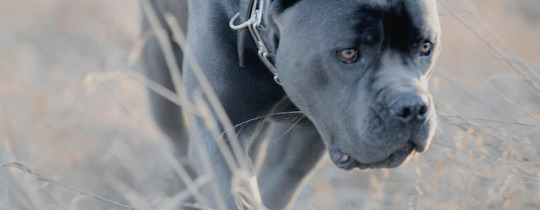
Elion wakes up. Which in itself is a strange occurrence as he doesn’t need to sleep and never feels the urge to suddenly sleep. But he has slept this night. He wakes with some mice and a fox sleeping close and warm and decides to make breakfast for his friends, which he brings to them at their bedside. Bree almost cries after this act of kindness and Ru pretends it doesn’t face her, but it does.
As they’re planning what to do, they have a meeting in the afternoon with the Gauntlet, there’s suddenly a harsh knocking at the door and Bree goes to open, after first trying to see who’s out there through the window. Björn Kirksdottir is at their doorstep and he breathlessly tells them that his son, Asir, is missing. He had left the house before eleven sometime the night before and never returned. He begs the friends to come with him to his home and see if they can find any clues as to where the boy has gone. The friends agree and immediately follow Björn back into the second district.
In Asir’s room they find a note, hidden under the young man’s pillow. “Please, I can’t go another day without seeing you. Please meet me at our spot, midnight. yours. MR” the note says. Before asking the father about it, Elion also finds a small token with a dark lock of hair in it. The father doesn’t know anything about a lover of any kind, proving once again that he knows nothing of his children’s lives. He is calmed by this, thinking maybe the boy just went out with his bou. After finding a whole bunch of love letters hidden in the closet in Brilde’s room, the father pays each of them 300 gp to find out what’s happened to his son. He doesn’t seem to understand that this is a very large sum?
When they leave the house, Bree suggests her pup Betsy can track the scent from the note from under Asir’s bed and they head out into the district to try to find clues. After some searching, they find a spot down by the riverside. A small nook with benches and trees and crumbs from some kind of baked goods. Here, Betsy stops. they find some long dark hairs of the same color as the ones found in the token. Betsy sniffs the hair from the token and brings them up onto the road and indicates that the person whom the hair belonged to crossed the bridge, which leads to the first district. The friends decide to ask the guards and after some rudeness, one of the guards sighs and kindly tells them that no, he hasn’t seen anyone cross the bridge since he got there at four in the morning.
After this dead end, they decide to go see their soldier friend Sandor to talk to him about the mysterious sickly redhead that had been seen speaking to Sandor’s dwarven boyfriend. Sandor loves Betsy and invites them into a small guard booth to talk in private. “I’m not trying to be rude and say you’re a redhead so you must know all other redheads,” Rurik apologetically starts to ask when trying to find out if Sandor knows someone who matches the description of the sickly person. He does in fact know who that might be; Desmond Strongfist, his older brother. The friends agree to speak to Desmond, as Sandor believes he might not tell the truth if he went there and asked himself.
Upon arriving at Desmond Strongfist’s modest mansion, they meet his wife Sophie who seems worried about his condition, with good reason. Desmond sits in a chair looking close to death but still gets up to greet them. He admits to speaking to Frerin, apparently trying to convince the dwarf to leave his younger brother. He says he did this for his brother’s sake, as Desmond himself is sickly and will likely die sooner than later, leaving only his younger brother to take over the family fortune. He says his family will not approve of Sandor marrying someone beneath his status, and that he wanted to spare Sandor the grief. When Frerin had refused to listen, Desmond had suggested maybe he could do something to raise his own status, but when he heard from Sandor that his boyfriend had seemingly dumped him, Desmond had actually felt disappointed that Frerin didn’t care as much as he had said.
Elion takes offense at the way Desmond has decided to handle the situation and they get into a heated argument which ends with Desmond telling them all to leave. His wife returns with tea and urges them all to have some as she talks some sense into her husband. Elion’s first cup is cold… After speaking to his wife Desmond apologizes for his rudeness.
On their way back to the second district for their meeting with the order of the Gauntlet, they discover a crowd of people have gathered down by the docs. Galliant Rosehop has been found in the river. Back at the Three Beers, they speak to Garulf about this but he doesn’t seem too worried about them being found out. Before too long, they’re introduced to the person who’ll help them get passes to enter into the first district and it turns out to be Safiya Heimland, the half dwarf they’ve already met. Safiya knows a lot and tells them that yes, the ruler of Neverwinter is indeed sick, she’s been trying to get an audience with him but hasn’t managed to convince the powerful Underbrand family to let her into the castle. She also tells them about a project she’s working on where some volunteers help rebuild some farm houses in exchange for increasing their status. She says she doesn’t blame the friends for killing Galliant Rosehop but jokingly says they can’t kill anyone else if she gives them the permit to enter into her district. Especially since she’s neighbors with Rockford.
After getting the permit, they decide to pay the Glaston family a visit. Their daughter, Aynswyth, didn’t want them to deliver any message to her parents and the friends are slightly worried that her family are bad people. Turns out they’re assholes. They tried to lie about caring about their daughter but after Aynswyth’s little sister Gloria yells at them for being liars, they freely admit that they wanted Aynswyth gone. She was too brash and confident and wasn’t interested in the men they wanted to marry her off with. They’d been so happy when Mortimer Rosehop seemed to have taken an interest in her, but then she’d gone missing and maybe that was for the best… the sister, who’s only twelve, curses like a sailor and Elion - who’s spent time in a cell next to Aynswyth - smiles fondly at how much like her older sister Gloria is. They promise they’ll give Aynswyth a message from Gloria if they see her.
2 notes
·
View notes
Note
What makes the 14th century alliterative revival interesting to you? If I can ask?
(i’m going to do the best i can to answer this while every piece of premodern lit i own is taped up in a box somewhere. this post is also going to be very long because it’s my blog and i do what i want.)
first of all i just like alliteration in any form of poetry—i think it makes it more fun to read out loud and helps to accentuate and drive along the meter. it’s also the primary ornamental device in old english poetry—i think the ruin provides a pretty good ongoing example although the translation they’re using on wikipedia is a bit lackluster imo. the ruin is also interesting in itself for a variety of reasons but i’m personally a fan of the way the alliteration seems to ebb and flow in intensity throughout the poem as the poet moves between the city as it once was and the ruins that it is now. it’s also got a bit of internal rhyme near the start with the repetition of -orene words—gehrorene, scorene, gedrorene, forweorone, geleorene (undereotone if you squint)—that i love. this is largely beside the point. anyway it looks like this—
glædmod ond goldbeorht || gleoma gefrætwed,
wlonc ond wingal || wighyrstum scan;
seah on sinc, on sylfor, || on searogimmas,
on ead, on æht, || on eorcanstan,
on þas beorhtan burg || bradan rices. (the ruin, lines 33-37)
broadly, the rule is: four stresses per line, at least three of which alliterate (wlonc ond wingal || wighyrstum scan; or, more widely known and a bit looser, hwæt! we gar-dena || in gear-dagum...)
anyway post-conquest a lot of things change; partially because english isn’t the prestige language for a couple-three centuries afterwards so prestige poetry is in latin or norman french (or anglo-norman), partially because english itself is obviously changing through absorbing a lot of norman & otherwise-french influence, partially it is the nature of poetic form to adapt. i’ve seen some arguments that end-rhyme was introduced into french-etc. poetry through diffusion of arabic poetry out of al-andalus; i’m not qualified to comment but it sounds plausible. either way, at and after the time of conquest, french verse was generally octosyllabic, and rhyming or at least assonant—
Bels fut li vespres e li soleilz fut clers.
Les dis mulez fait Carles establer.
El’ grant vergier fait li reis tendre un tref;
Les dis messages ad fait enz hosteler;
Duze serjant les unt bien cunreez. (la chanson de roland, att. turold, c. 1040–1115, lines 157-161; assonant)
Quant des lais faire m’entremet,
ne vueil ubliër Bisclavret.
Bisclavret a nun en Bretan,
Garulf l’apelent li Norman. (bisclavret, marie de france, c. 1160–1215, lines 1-4; aabb rhyming)
alliterative verse didn’t entirely disappear, probably, but we don’t have evidence for it after the composition of layamon’s brut in 1190. the verse compositions in identifiable english that we have, like of arthour and of merlin or richard coer de lyon, tend to take after anglo-norman and french antecedents—
Merlin seyd to þe king
“Al y knowe þi glosing,
Y wot þou louest par amour
Ygerne þat swete flour.
What wiltow ȝeue me, ar tomorwe
Y schal þe lese out of þi sorwe?” (of arthour and of merlin, c. 1250–1300, lines 2477-2482)
He answeryd wiþ herte ffree,
“Þeron j moot avyse me.
Ȝe weten weel, it is no lawe,
A kynge to hange and to drawe…” (richard coer de lyon, c. 1300, lines 997-1000)
the above two are fairly representative of earlier (like, pre-chaucerian) middle english poetic literature. speaking broadly: short, metrical rhymed couplets. i should also mention, probably, that people at the time were fairly inconsistent about the scribal difference between u and v or y/i/j, that þ goes “th”, and that ȝ makes a variety of “g” or “g”-“y” cusp or “gh” or “ch” sounds and can also stand in scribally for a z or hard s.
anyway, the 14th century alliterative revival is what it sounds like: around 1350, primarily in the north and west of england, a lot of alliterative verse began to be written down. it’s…very different from the examples given above:
And þat þe myriest in his muckel þat myȝt ride;
For of bak and of brest al were his bodi sturne,
Both his wombe and his wast were worthily smale,
And alle his fetures folȝande, in forme þat he hade,
ful clene;
For wonder of his hwe men hade,
Set in his semblaunt sene;
He ferde as freke were fade,
And oueral enker-grene. (sir gawain and the green knight, “gawain poet”, c. 1370–1390, lines 142-150)
middle english alliterative verse by and large rejects end-rhyming (however, the exceptions to that rule are absolutely my favorites—more later), and brings back the four-stress line (both his wombe and his wast || were worthily smale) although in a longer and looser form than was common in old english, probably because of linguistic shifts and because of evolution of the medium. it is so fun to read out loud. sir gawain and the alliterative morte arthure are probably your most accessible examples—they’re both available in facing-page translation by simon armitage, who isn’t my favorite translator of sir gawain but does a good job of retaining the stresses. piers plowman is also representative, but reading it, to me, is a little like being trapped in the donut shop my grandpa hangs out at with a bunch of other old guys, except without donuts—it’s very old-man-yells-at-cloud. but really my interest with them is less with translation than with the way that the language sits in my mouth, and the way that i think alliterative verse sort of pulls the lines forward in a way that end-rhyme doesn’t necessarily—it feels more propulsive, more churning. it’s like a water-wheel, if that makes sense? it plays off the natural stresses of the english language in a really engaging way, and differently from iambic pentameter, which tends to get most of the spotlight when it comes to naturalistic rhythm in english poetry. and there’s a playfulness to a lot of it (especially the rhymed poems), or at least a sense of the ability to play with language, that i love and that i think a lot of people don’t really realize existed in medieval literature (or think only chaucer was capable of it.)
however! the works from the alliterative revival that combine alliteration and end-rhyme are some of my favorite poems in the english language (for a permissive definition of “english”), because they tend to develop these incredible complex, elaborate structures of rhyme and meter. so there are two poems in this category that i’m going to talk about, and i can go for…a long time on the second one. i’m not really going to bring up sir gawain on its own much more because, no room, but it’s really one of my favorite arthurian works, in part because of the alliterative verse, in part because i just love the figure of the green knight and the awful castle hautdesert threesome setup; it’s also one of the more accessible examples of the core of the genre (at least to me—i bounced really hard off of malory, the mabinogion is fun but deeply weird in a way that might put off beginners, and i think chrétien de troyes really depends on how you’re introduced—english translations of french arthuriana tend to be prose translations, which is a whole different post but suffice it to say i don’t think they work.)
first is the three dead kings, which is an expansion on the “as you are so i once was / as i am so shall you be” type of memento mori motif that was pretty common at the time; three kings on a boar hunt run into three corpses who identify themselves as their ancestors and tell them to stop fucking around and take death seriously. so, thematically—i think memento mori art and literature is a lot of fun, in general; the combination of the focus on life’s transience with macabre and often enthusiastically ghoulish imagery—
Lo, here the wormus in my wome — thai wallon and wyndon!
Lo, here the wrase of the wede || that I was in wondon! (the three dead kings, att. john audelay, c. 1426, lines 98–99)
—and the vision of life still continuing after death and among the dead, not necessarily solely in the sense of the resurrection but in a community of the dead on earth who speak to and concern themselves with the living, it’s just very fun. (afterlives by nancy mandeville caciola is an absolute blast on that front, by the way.) the three dead kings is also structurally complex in a really enjoyable way: it’s not bob-and-wheel (which you see very famously in sir gawain, the little two-word bob and four-line abab wheel at the end of each verse), but the five-line cdccd bit that i’d call a sort of wheel; and then the main body of each stanza has this very fun abababab scheme where the a- and b-words still half-rhyme with each other. from the stanza i quoted above, you get “fynden — fondon — lynden — Londen — byndon — bondon — wyndon — wondon”. i think it plays very well with the meter.
aside from that, i love the imagery of it; it ranges from, like i said, almost comically grotesque—the dead king whose legs are like leeks wrapped in linen, the worms wallowing and winding in the womb (interesting word choice, also)—to this very sere, wintry atmosphere; the last stanza has a half-line about the “red rowys of the day,” the red daylight, that i just love. and i’m a big fan of the way that, kind of like sir gawain in miniature, the three dead kings opens with this celebration of chivalric performance that’s suddenly pulled askew by the intrusion of supernatural—or, like, really, the most natural; what’s more normal than death, or than cyclical renewal?—forces.
the second poem is pearl. (the linked translation is not my favorite; simon armitage has a facing-page one that’s pretty good, but my favorite overall is marie borroff’s (rip), who also did my favorite sir gawain.) i’m going to do my best not to just go on and on about pearl for ages, because this post is already very long, but it’s also, i think, one of my favorite poems, period. its structure is very hard to talk about briefly, because the way that it’s built is integral to its subject. in brief: 101 stanzas, each of 12 lines in abababab-bcbc rhyme, divided into 20 cantos (the 14th canto has 6 stanzas, the rest 5), for a total of 1212 lines. within each canto, the first and last line of each stanza repeat these linking words and phrases (except the first line of each canto, which does so to the final line of the canto preceding, and the final line of the poem, which paraphrases the opening line.) this is all because pearl is in part about heavenly geometry, the square/cube of the heavenly city (12 furlongs on a side, filled with 144,000 maidens) and the circle/sphere of the pearl, and the way that those two shapes are interposed on each other—there’s a lot of structural/behind-the-scenes numerology and geometry to talk about, but like…i won’t right now. it’s also, in the poem itself, something that can’t fully be talked about—
An-under mone so great merwayle
No fleschly hert ne myȝt endeure,
As quen I blusched upon þat bayle,
So ferly þerof watȝ þe fasure.
I stod as stylle as dased quayle
For ferly of þat frelich fygure,
Þat felde I nawþer reste ne trauayle,
So watȝ I rauyste wyth glymme pure.
For I dar say wyth conciens sure,
Hade bodyly burne abiden þat bone,
Þaȝ alle clerkeȝ hym hade in cure,
His lyf were loste an-under mone. (pearl, “gawain poet,” c. 1370–1390, lines 1081–1092)
briefly—the narrator sees the heavenly city and nearly dies on the spot, only protected by the fact that this is all taking place in a dream-vision. borroff translates a bit of that as:
As a quail that couches, dumb and dazed,
I stared on that great symmetry
Nor rest nor travail my soul could taste,
Pure radiance so had ravished me.
like…i love that. so much of pearl is about mortal and divine perception, about the unknowability of death and the depth of grief and the final breakdown of the consolatio as a literary-philosophical genre, and about the way that the dead who have transcended death and come out the other side are residing because of that transcendence in a fundamentally alien sphere of cognition, marked out by the impossible-to-withstand radiance of the heavenly city.
but what pearl is about-about, it’s generally agreed, is the death of the narrator’s young daughter. she is the pearl who he lost; grieving her, he falls asleep in a garden and has a dream. in this dream, he wakes up in a fantastical garden or forest, divided by a river, and on the other side of that river is a beautiful young woman who identifies herself, and who the narrator identifies, as the “pearl”. the rest of the poem is a back-and-forth between the narrator and the pearl-maiden, which is largely him asking questions and her explaining biblical parables to him. but describing the conversation as that really does it an incalculable disservice, because what it is is, on the one hand, a grieving parent asking these very human, tender questions of his lost child—are you really her? why did you have to go? where are you? are you happy where you are?—while the child offers only these very stern, cold rebukes—þou most abyde þat He schal deme—and abstruse explanations of the parable of the vineyard; and on the other hand, someone who has been made greedy and grasping and willfully uncomprehending in his grief, refusing to understand that the child he lost is happier where she is now, and that she can be happier there, and that he cannot join her before his decreed time. and he’s not at fault for being that way, but he’s thinking in ways that are fundamentally limited by the mortal realm that he can’t yet exit and she’s thinking in ways that are incomprehensible to people who haven’t also undergone the same apocalyptic, in the word’s sense of “unveiling” (but also, i mean, she’s in the heavenly city), reorientation of thought and being. it’s a very tender poem that i think also manages to prefigure some of the staples of eldritch horror.
and i love how the structure plays into that; the alliteration is looser than the three dead kings—there’s basically no caesura (the || that shows up sometimes in three dead kings and is more or less mandatory in old english verse), and sometimes there’s only 2 alliterations to a line, because the lines are shorter, or none at all—but it’s still got these wonderful repetitions of sound across the stanzas, tied into the repetition of the key words at the beginning and end. the whole thing builds up and up and then collapses back onto the beginning, as the narrator gradually believes he’s understanding more and more and then, in his attempt to ford the river before his time, is thrown back into the mortal world; the poem’s like an impossible staircase. it’s this massive crystalline structure enclosing a deeply human core. there is, to my knowledge, nothing else like it. it—and the other works, including sir gawain, attributed to the “gawain poet” on the basis of stylistic similarities—survives in a single manuscript, cotton nero a.x, which fortunately survived the ashburnham house fire in 1731.
to close off on the alliterative revival at large, it fell out of fashion over the 1400s; in england, the chaucerian tradition—end-rhymed iambic pentameter—dominated, and while alliterative-meter poetry still had some currency in the scottish court that ended with james vi/i stuart’s ascent to the english throne and transfer of his court to london. in modern usage, alliteration as its own technique does crop up in poetry—and i’m always happy to see it—but alliterative meter (as in, four-stress lines, or even the looser form of sir gawain or the three dead kings) is much less common and most people encounter it either through translations of beowulf or through some of the poetry in the lord of the rings (from dark dunharrow || in the dim of morning…)
1 note
·
View note
Text
In two towers when that mum gets her two kids on a horse to escape the men attacking their village and the little girl is like "papa said Eothain must not ride Garulf. He is too big for him!" 😭😭😭
0 notes
Text
Ругару
Rougarou — франкоязычный вариант написания наименования "ругару".
Однажды я встретился с ругару на юге Прогансу, среди замечательных лавандовых полей, где он охотился на симпатичных селянок, сжирая их вместе с костями, красными чепцами и башмаками.
Алексей Пехов "Страж"
Знатоки и любители современного фэнтези — от компьютерных игр до кинематографической продукции — уже наверное привыкли к тому, что на экранах вервольфы (люди, оборачивающиеся волками) могут перекидываться в звериную форму как полностью, так и частично. То есть превращаться или в большого волка, или в некий промежуточный вариант, где гуманоид разной степени монструозности имеет волчью голову. Халф-мод, так сказать... Для современной массовой культуры это уже практически традиция и даже штамп. Между тем аутентичная народная мифология, по крайней мере европейская, промежуточных оборотнических форм практически не знала. Нет, конечно, рассказывались истории о чужедальних странах, где жили чудовищные народы с собачьими головами, на Британских островах говорили о Вулвере — волкоглавом рыболове... Но чтобы оборотень — и только частично? Нет, что-то не слышали.
Между тем, если же говорить не только о Европе, но захватить и американский континент, то оборотнические вариации становятся значительно более разнообразными. В частности, обращает на себя внимание такой персонаж как Ругару. Он известен из фольклора франкоговорящих переселенцев американского штата Луизиана — кажунов, которые очень тесно общались сразу с североамериканскими индейцами (на территории Новой Шотландии), а потом с креолами, потомками смешанный браков между индейцами, неграми, испанц��ми. Таким образом получился очень "забавный" персонаж с европейским именем и мультинациональным содержанием (в рамках последнего его даже роднят с Вендиго, хотя казалось бы уж на сколько различны образы...).
Итак, слово Ругару происходит от французского Loup-garou, что значит оборотень. Название сложное, многосоставное: французское Loup — значит "волк" и Garou (древнефранкский Garulf — "человек-волк", "оборотень"). И вариаций его используется более чем достаточно: Rougarou, Roux-Ga-Roux, Rugaroo или Rugaru. Если же говорить о сущностных особенностях ругару, то их тоже есть.
В некоторых историях ругару перекидывается в волка не целиком и полностью — меняется только его голова. Именно она становится волчьей. Или собачьей. Или даже свиной, или коровьей. А то бывает и цыпленочьей, но, что характерно, голова должна быть сугубо от белого цыпленка! При этом тело не трансформируется, а как бы "выворачивается на изнанку, быстро, без каких-либо физических неудобств и боли". Во-вторых, ругару не зависят от фаз луны, так как оборотнями они становятся большей частью из-за происков ведьм: либо сами ведьмы принимают такой облик, либо насылают проклятье на простого человека (*). В таком случае есть шанс, что стоит ругару пролить кровь другого человека и проклятье перейдет уже на него, а прежний проклятый "освободится". По другой легенде, ругару находится под заклятием 101 день. По истечении этого срока проклятие само переходит к другому человеку, укушенному ругару. Но на такой упрощенный вариант на самом деле надежды мало...
Другие рассказывают, что ругару могут полностью перекидываться в животных. Один из самых распространённых способов вернуть ругару в его человеческое обличье — это пролить его кровь. Подобные легенды характерны для франкофонного населения вообще и встречаются не только в Луизиане, но и в канадском Квебеке.
Следующая история - луизианского происхождения:
Один раз женщина мыла свиную требуху около байу и к ней подошла странная собака. И она говорит "Пошла вон! Пошла вон!", потому что она боялась собаки. Но собака её не послушала. Она отошла чуть подальше, но затем учуяла запах требухи и подошла вновь. А она ей вновь: "А ну пошла вон!". Собака опять чуть отошла, но затем вернулась.
И женщина воскликнула "Чёртов пёс!" и кинула в него нож и нож порезал собаке нос и вылилось несколько капель крови. И собака превратилаась в человека.
Когда он стал человеком, он сказал: "Спасибо вам большое, мадам, вы освободили меня от проклятия (gri-gri)".
"От проклятия?" — спросила она?
"Да", — сказал он. "Я выпил кровь чёрного цыплёнка в полночь на перекрёстке, чтобы иметь возможность обратиться в того, кого хочу. Но как же я устал от этого! И теперь, когда была пролита моя кровь, я освобождён от необходимости оставаться в изменённой форме. Спасибо вам большое!"
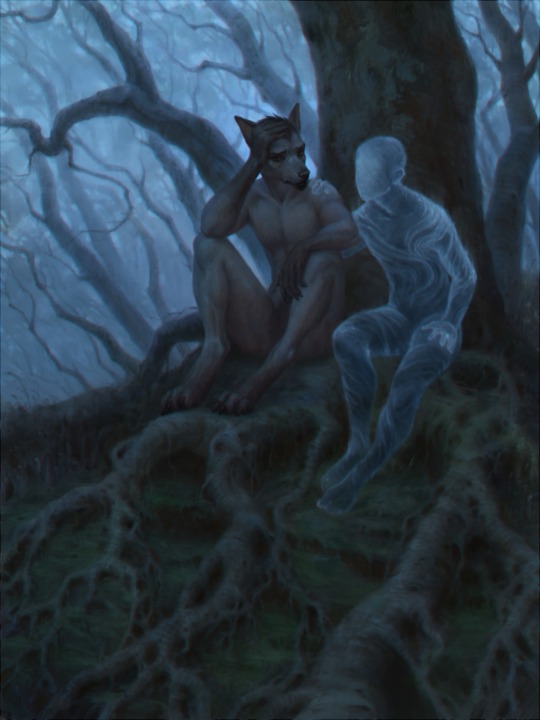
0 notes
Text
There's no use in flogging a dead horse
eloquent
Guillaume de Lorris Belated
my power
Adown her shoulders
you Were Lackland Cino
houses
war I
songs
En cest bourdel ou tenoms nostr estat
Garulf Bisclavret
Pierre
wrack Of
Lips shrunk
0 notes
Text
The Spirit of Nirn CH3 P03

Some music to go along with the reading xD
youtube
« "I have no idea what this stubborn Nord told you, but I bet half of it he read off the stones in the cemetery." »
Marthe told the guards with a smile, before her fingers again nervously around the fabric of the green dress. After all, she confessed Kust to be able to read, what in the world in which the people lived, did not belong to everyday life. As far as she could find out, it was reserved for the magicians and priests, as well as for the rich, to afford books and the teachers who taught them to read. Marthe had already made this discovery a few years ago, for Saarh had always been sincere and honest when she had told her of the world of men, from whom Marthe has kept away since her birth. It was unthinkable what would happen if she were to meet her father. She had not learned anything about his whereabouts so far. The angelic smile remained intact as she watched the guards of Falkreath still unimpressed and melt their warnings precisely on her tongue. «" The reason why I'm here is, I promised a sweet roll and a salmon to someone with a great hunger, and since it's too late to bake and fish, I thought maybe I could find it there ... "» She showed the guards in her innocent way the tavern of the city, in which one could buy both to secure the little conundrum waiting for her would be happy after all. «" ... that I might buy it there. You must know, he will be unpalatable if it is not enough, and it will terribly affect his stomach and his impetuous mind."» She stayed with the truth, even though the guards, stupid as they were, saw quite different images in front of their inner eyes. They probably had not the slightest idea that the young woman was talking about a bear cub and not of a man she has to warm at cold nights. Her golden gaze raises to the sky at one point and she saw Masser and Secunda wandering around the horizon and she let a helpless sigh flowing over her poppy-red lips. If it weren't the guards that would stop her from following this unknown path it would be the time, that flows like sand through spread fingers. The young lass caught them off guard with this sad look into the dark night sky and with a growled warning they let her go, though they don't want to and don't have to. Aware of this circumstance, Marthe offers warm thanks to them, not sure why they won't let her wandering the streets all alone.
A hungry growl accompanied her when she finally entered the Dead Mans Drink. A growl as loud as a debate between the legendary Dragons which had returned to Skyrim a very long time ago. A soft shiver run down her arms, feeling sorry for Rumper and that he has to wait for so long now. Not even the Luna Moth's, sitting on his fur were able to bring him some joy. He was hungry. So hungry. And another growl echoed from the mountains which surround Falkreath. «" I'll be back in a hurry, little One."», Marthe whispered when the door closed behind her. Like a sandstorm, the flowing gold of her eyes began to dance, when she takes a good look around. This was far from everything she ever had expected. Flickering candles draw spooky shadows on the walls that began to dance with every breeze that reached them. Smells, as intense as fresh from a pig's stall, made the young woman briefly stop at one of the support beams. Within a second she closed her eyes for just one moment and a gentle smile could be seen on her lips when Marthe saw a picture of the Matron Grove she called her home. Grown up in the wilderness of the Ancient Forests and the safety of Saarh's Sanctuary, Marthe never visits a house like this tavern before. Just her curiosity to learn more and more about the foreign world of men had forced the Spirit of Nirn to tell her what she wanted to know. Her golden eyes try to find Masser and Secunda through the small windows and a disappointed sigh left her lips. She has to be careful. Very careful to not miss the time to go. But again Ya'els words come to her mind and pushed the insecurities away. At least for one moment. After approaching the innkeeper she was heavily surprised to talk to a woman and not one of those drunken men. Strong, tough but in her own way kind, the innkeeper tells her a story of a bunch of hunters she missed now for days. She told Marthe that they went out on a hunt for bears and one of her red brows raise higher and higher when she learned where they want to hunt.
Mossmother Cavern was a sacred place and far from being a hunting ground for mere humans. « "The men you are waiting for have invaded a sacred place of Kynareth. Make sure to pray for their return, but don't ask me to help you in this matter." » Soft, gentle and calm sounded her response to the innkeeper's sad story, but Marthe wasn't willing to help her and her friends. No mere human was supposed to enter this cave, hidden deep in the Ancient Forests. Within this small conversation, she missed the moment when her small and fragile silhouette was mantled by a large; a very large shadow and a massive hand, or maybe a predators prank was put on the counter. The moment, Marthe turned around was a moment of shock. Close to her, with a voice like a bear, the giant she has seen before was now hanging around, talking... better asking the innkeeper the third time for the belayed delivery of Black-Briar-Mead and something similar to drink. He was supposed to meet his Captain here and kept waiting for him for he had no clue how long it would take for Sayid to accompany the High-Priestess of the Company back to her Sanctuary when they left the Old Chapel in Riverwood nearly one day ago. Mealy poppy-red lips had formed a perfect "O", while she was busy to behold him from his feet... up to his legs which were as thick as young trees, up to his arms which were stronger than her own legs and the whole way up to his face. A very long way up and a damn long way down to watch. It wasn't an attracted gaze but a very impressed and curious one for sure. The first thing that comes to her mind was a bear. Not sure why, but that seems to fit for him.
What she hasn't noticed thus far was a small detail which one could overlook very quick. It was a small ring he was wearing on his right hand, which showed his boundaries and ties to the Black Wolf Company. It was the same ring, Sayid and most members of the Company were wearing. Stranger and foreigner may think, that the Wolf the small ring showed was related to the name of the Company, and maybe they were all right. But there was more to this small odd. When Marthe's gaze crossed his finger, a small vision came across her thoughts like a flashlight. It was the image of Fenrir, the patron of the Company and Lord of the Canis Lupus. Not sure why she shook her head and let the vision fade away. There were no boundaries noticeable to Hircine as far as she could see for this moment. So Fenrir was the only deity possible for what she suspected. And when his attention reached her she grants him a courageous and gentle smile. Not sure what to say, a lot of options come to her mind. She could invite him to go fish and bake with her. Well, he would bake the Sweet Roll and she would fish the salmon, but that doesn't seem a perfect start for this conversation. She could ask him if it hurts to be so strong and tall and if the air was better all the way up there where he was breathing. « "This isn't the time to devote yourself to your playful and curious nature, young Guardian... so let the moons help you for today." » The soft singing in her mind caught her completely off guard and a rush but intense look around told her, that she was the only one able to hear Ya'els beautiful voice.
« "Little lass, is everything alright?" »
Garulf Wild-Blood, a warrior by heart and trusted member of the Black Wolf Company had noticed her when her eyes rushed around the small and not so cozy inn. And when he bowed his head to have a better look at her, her golden eyes sank deep into Whites and soft Shades of Grey. How could she miss his eyes? How could she even forget Ya'els words? With a slight and surprised, swallow she decides that it'll be enough to keep her eyes straight in his chest when her soft voice reached his ears. « "The One you're waiting for ... he will not come." » He wants to laugh, give it try and with a second look on her face he knew that she was right and draw the sword he was carrying on his back....
#skyrim#The Elder Scrolls#the elder scrolls v#Skyrim Dragonborn#dragonborn#TES5#TES#skyrim screenshots#skyrim character#Storytelling#Writing#gaming screenshots#Saarh
0 notes
Photo
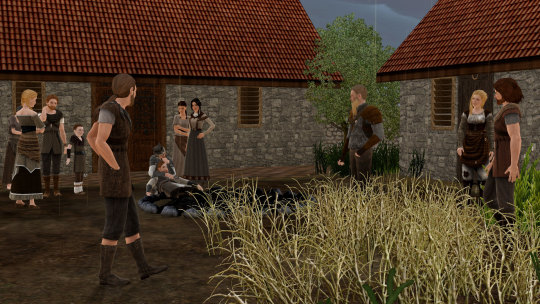

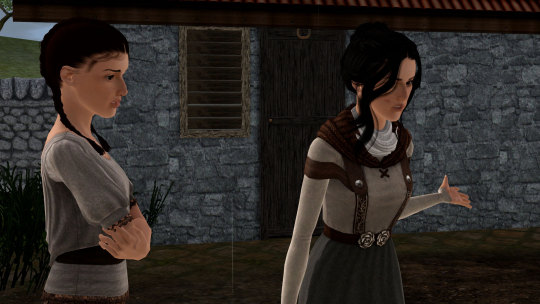
Garulf: He’s … ? But … he can’t! I just wanted to strike him down … make him see reason! He … What have I done? We’re all cursed, this must be terrible punishment …
Lavinia: [Pull yourself together, man! There’s a cohort waiting outside! Did my own father make such a fuss when he slew young Mucius – and me for that matter?]
Cecilia: She’s saying…
Lavinia: [This is not he first husband I’m burying, nor will it be the last.]
Garulf: Yes, yes I know. She’s no longer bound to us in any way. My dear son was right.
12 notes
·
View notes
Note
╰☆╮

internal screaming
"Now I know you’ve had too much ale, princess.”
11 notes
·
View notes